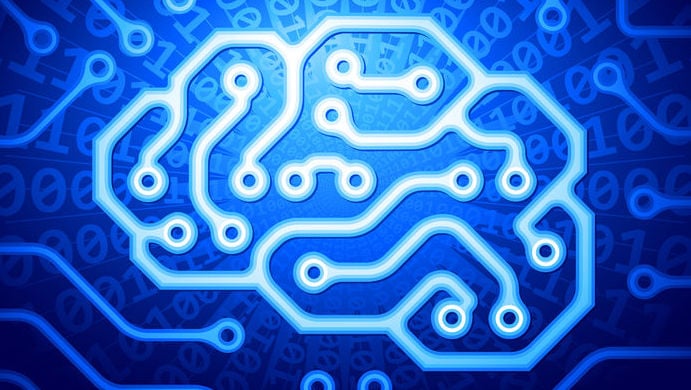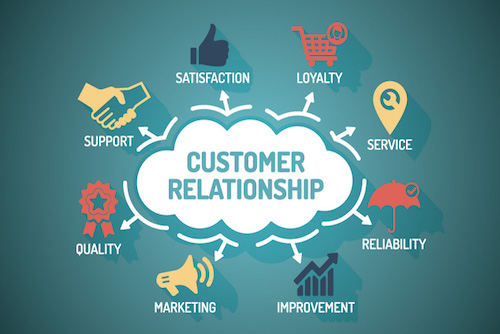From chatbots to demand prediction, AI is set to revolutionise the way we buy, sell, and market goods online

For quite some time AI, or artificial intelligence was a topic for science fiction. But today, we have AI integrated in so many aspects of our lives — our interaction with apps and online services relies on artificial intelligence to a great extent.
To put it more simply, when you use Google maps for navigation the narrator informs you as soon as a faster route is available — that is how AI works. You’re feed on channels and websites like Netflix and Youtube have recommendations based on the choices you made in the past using AI. Similarly, the suggestions for your purchases work when you go to an e-commerce website. For instance all the recommended items you see after you add a product to your cart. All these are generated and selected to be displayed to you using AI algorithms and calculations.
Particularly for e-commerce, AI applications are numerous and we have barely even scratched the surface. This year, AI will factor into e-commerce in followings ways
1. Chatbots

Online shoppers while shopping must have surely encountered AI in the form of a chatbot. The ‘chat now’ box that’s present on website’s or mobile app’s home page isn’t actually handled by an actual human customer care executive but instead it is an AI-based bot that has been programmed in such a manner that it can help you with any questions about the purchase you have. With increased sophistication of AI it’s hard to tell the difference as the experience is becoming more branded, personalised and intelligent.
Also read: A good chatbot is a USED chatbot
It has now become possible for e-commerce websites and apps to offer 24/7 customer support thanks to AI. It can quickly collect customer data, their preferences and track their behavior and thus reach seamless brand continuity. Having an efficient and advanced AI chatbot e-commerce sites can boost their conversion rates by providing their consumers a tailor made online experience without any extra effort.
2. Customer Relationship Management
Predictive nature is a defining feature of AI. And that is rapidly making Customer relationship management (CRM) irrelevant. CRM used to be a labour intensive task which involved collection of copious amount of data and draw conclusions and prediction for customer behavior. Thanks to AI and machine learning it has become fully automated and efficient. It has eliminated human element almost completely.
With AI in the mix, e-commerce owners (both mobile commerce app and desktop sites) will no longer have to focus on aggressive marketing and the amount of ad exposure. Marketing will significantly change with the more focus on quality and direction of the right content to the right demographic and at the right time. And it will not only make proceedings easy for you but will also enhance user experience as a whole.
3. Better results with Machine Learning

Machine learning is being looked into by brands to improve the search results for shoppers. Machine learning improves search suggestions every time a consumer makes purchase on an ecommerce store. It works differently as compared to simple keyword matching; it sorts the search results on the basis of relevance based on a search ranking it generates. Ebay has made use of AI and machine learning to offer improved search results and to analyse search results and display the most relevant ones from a big collection of products.
Also read: What role does edge computing and machine learning have in IoT?
Therefore Machine learning with its working makes the e-commerce mobile app or website adopting it the best option for consumers with most relevant campaigns, offers and strategic messaging.
4. Inventory Management

Inventory management, too, is being reshaped by AI. Its predictive nature is trumping the manual system of inventory management. What was once a an extremely tedious task comparable to a nightmare keeping track of stocked shelves, accurate tracking of everything in the inventory, keeping the database as up to date as possible. Also this system of inventory management employs the hindsight perspective. When it comes to e-commerce, however, this approach fails. That is because in an ecosystem as dynamic as e-commerce, the past is probably not the best metric to decide the present.
This is where AI comes in, it allows e-commerce app and website owners to acquire relevant information about all the factors that are affecting demand and predictive deduction of what future demands may arise. Since machine learning works on the principle of ‘improving more as you use it more’, it will improve to learn more about your firm, visitors, and customers with passing time. Thus the ecommerce mobile app and website owners will be able to predict their inventory needs for the future more precisely.
Summary
AI is the part of fifth generation of computers. This literally means it has ushered in a new era in technology advancements. And what better way to integrate this new generation technology than the future of commerce, i.e. e-commerce? e-commerce app development companies have now started to roll out e-commerce mobile app builders with more AI supported features (chatbots, etc). The future look of e-commerce is hinged on AI.
—-
The post 4 ways artificial intelligence is innovating e-commerce appeared first on e27.
